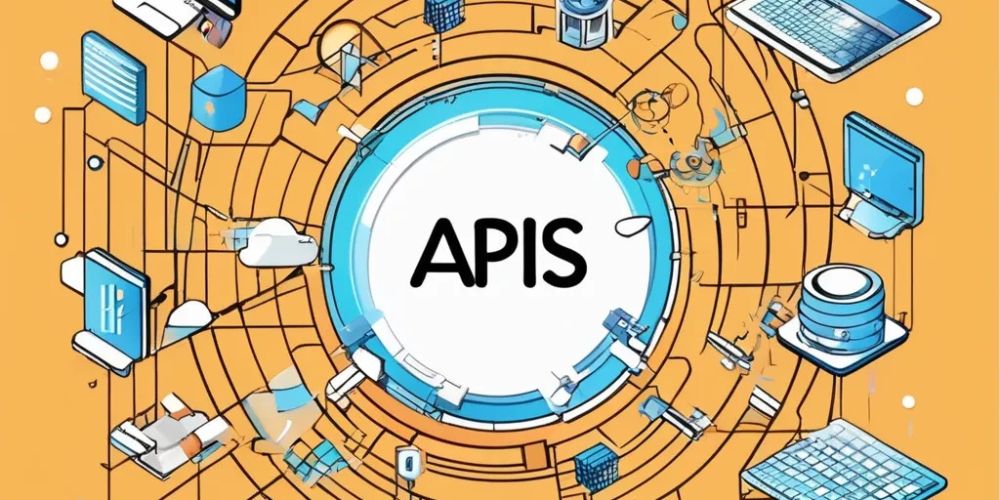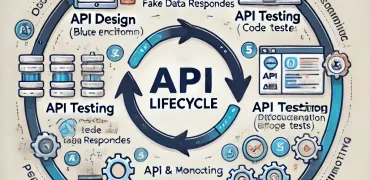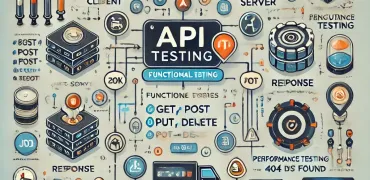The Power of APIs: Transforming Digital Connectivity in 2024

In today’s digital landscape, the term API (Application Programming Interface) has become a buzzword, but do we really understand how powerful APIs are in transforming our daily digital experiences? From seamless app integrations to powering AI-driven platforms, APIs are the backbone of modern technology. Whether you're a seasoned developer, a business owner, or simply a tech enthusiast, understanding the role of APIs in 2024 is crucial.
What is an API?
An API, or Application Programming Interface, is a set of protocols and tools that allows different software applications to communicate with one another. Think of it as a digital bridge. Without APIs, software systems would exist in isolated silos, unable to interact or share data efficiently.
For example, when you use your smartphone to order an Uber, the app doesn’t own the map system, the payment gateways, or the messaging services. Instead, it leverages APIs to pull data from Google Maps, process payments through payment gateways like PayPal, and send you notifications via Twilio. APIs are the unsung heroes behind these seamless integrations.
Why Are APIs So Important in 2024?
APIs aren’t just for developers—they’re shaping the future of businesses and industries across the globe. Here’s why:
- Automation and Efficiency
APIs allow businesses to automate repetitive tasks and streamline operations. By integrating with various third-party services, companies can focus on their core functions while relying on robust, automated systems. This increased efficiency is one of the reasons why APIs have become vital for digital transformation strategies. - Fostering Innovation
APIs open doors to innovation by providing developers with tools to build new applications quickly. With the rise of open APIs—which anyone can access—developers can create entirely new services that integrate with existing platforms, from chatbots to custom AI solutions. This interconnectedness accelerates innovation, providing solutions to problems faster than ever before. - Enhanced Customer Experience
The user experience is a critical factor in today’s competitive landscape. APIs allow companies to offer a more personalized and responsive experience by integrating multiple services into one cohesive platform. Whether it’s eCommerce platforms offering real-time shipping updates or streaming services like Netflix customizing recommendations, APIs ensure that customers enjoy a frictionless experience. - Monetization Opportunities
One of the growing trends in 2024 is API monetization. Companies like Salesforce, Stripe, and Twilio are generating significant revenue by offering APIs as products. By creating valuable APIs, companies are enabling other businesses to build upon their platforms while charging for access. This approach is increasingly popular in the SaaS (Software as a Service) space, where APIs become a key revenue stream.
The Evolution of APIs: From REST to GraphQL and Beyond
In the past decade, REST APIs (Representational State Transfer) have dominated the landscape due to their simplicity and scalability. However, as the demand for more sophisticated and efficient data queries grew, new approaches emerged.
GraphQL, developed by Facebook, is now one of the most powerful alternatives to REST. It allows developers to query exactly the data they need, making applications faster and more responsive. In 2024, we’re seeing a growing adoption of GraphQL APIs in industries that require complex, real-time data interactions, such as FinTech and eCommerce.
But there’s more: Serverless APIs and WebSockets are gaining popularity, allowing for even more flexibility and real-time data transfer. The future of APIs lies in adaptability, and these new technologies are reshaping how businesses communicate with their users.
Best Practices for API Development in 2024
As the demand for APIs grows, so does the need for best practices in API development. Here are some key principles to ensure your APIs remain efficient, secure, and scalable:
- Security First
APIs are vulnerable entry points for cyberattacks. Implement OAuth, SSL, and token-based authentication to ensure secure data transfer. As cyber threats evolve, API security remains a top priority in 2024, especially with the increase in data breaches. - Versioning
Ensure your API is future-proof by implementing versioning. This allows developers to continue using your API without breaking their applications every time an update is released. By adopting practices like semantic versioning (v1, v2, etc.), you can ensure backward compatibility and a smooth upgrade path. - Documentation
Comprehensive documentation is essential for developers who use your API. It should include clear examples, request/response formats, and error codes. Great documentation not only attracts more developers but also encourages correct usage of your API, reducing the likelihood of misuse. - Rate Limiting and Throttling
To prevent abuse and ensure your API’s availability, implement rate limiting and throttling strategies. These techniques limit the number of API requests a user can make in a given period, helping to avoid system overloads and denial-of-service attacks. - Developer Support and Community Engagement
Building a strong developer community around your API ensures its longevity and success. Offer responsive customer support, clear documentation, and actively engage in forums or social media to foster loyalty and encourage feedback.
APIs in Emerging Technologies
In 2024, APIs are driving the future of emerging technologies like Artificial Intelligence (AI), the Internet of Things (IoT), and Blockchain.
- AI and Machine Learning: APIs like OpenAI’s GPT-4 enable companies to integrate advanced machine learning capabilities into their platforms. From automating customer support to generating intelligent recommendations, AI APIs are transforming how businesses interact with data.
- IoT: As more devices become connected, IoT APIs allow them to communicate with each other and central hubs seamlessly. Whether it’s smart homes, wearable technology, or autonomous vehicles, APIs make the Internet of Things a reality.
- Blockchain: Blockchain APIs are revolutionizing industries by enabling secure and decentralized transactions. From smart contracts to cryptocurrency exchanges, APIs ensure the technology can be easily integrated into existing systems.
Conclusion: APIs Are the Future
In 2024, APIs are no longer optional—they are essential. Their ability to drive efficiency, enable innovation, and enhance customer experiences makes them the cornerstone of modern software development. Whether you’re a business leader looking to streamline operations or a developer building the next great app, APIs offer the tools and opportunities to succeed in a connected, digital world.
As we move deeper into the era of digital transformation, companies that harness the power of APIs will be better positioned to lead in innovation, scalability, and customer satisfaction. Whether you're exploring APIs for the first time or looking to enhance your existing systems, now is the time to embrace their full potential.
Unlocking API Efficiency with Doxify
One tool that’s gaining attention in the API space is Doxify. Designed for developers and teams, Doxify helps automate the documentation process for APIs, ensuring consistency and reducing manual work. Keeping your API documentation up to date is a critical factor for success, and Doxify makes it simple with automated updates, intuitive templates, and version control features.
By integrating Doxify into your workflow, you can streamline your API development and improve your collaboration with other developers. This efficiency not only enhances productivity but also ensures your APIs are easier to use, encouraging adoption and accelerating your API-driven growth.



